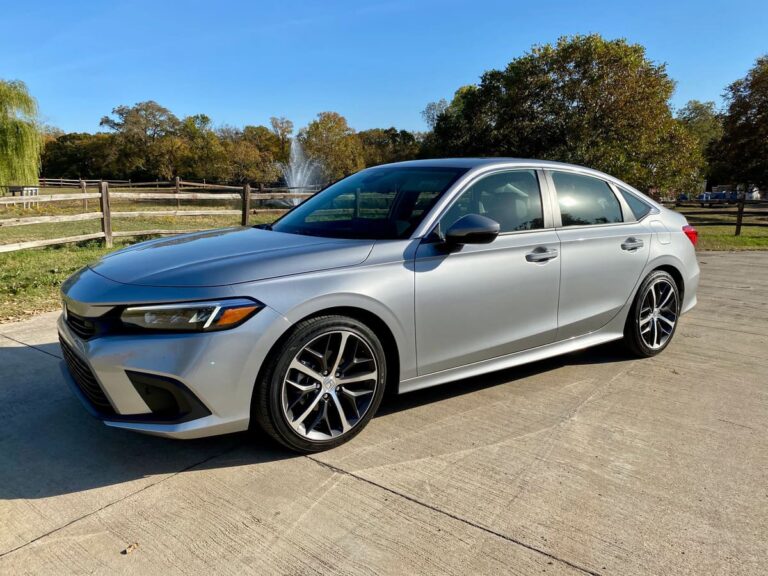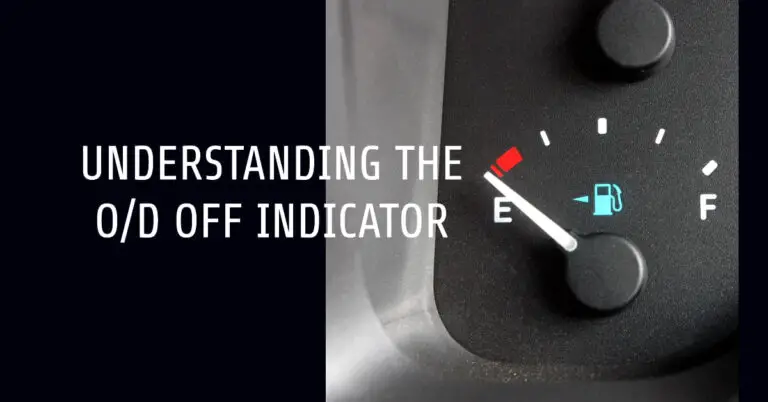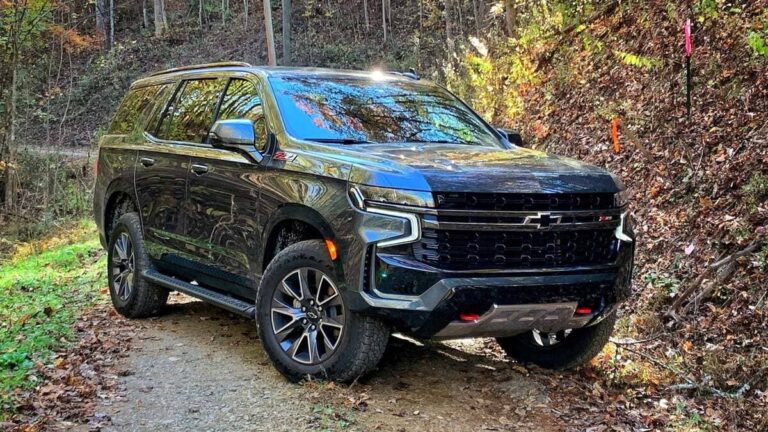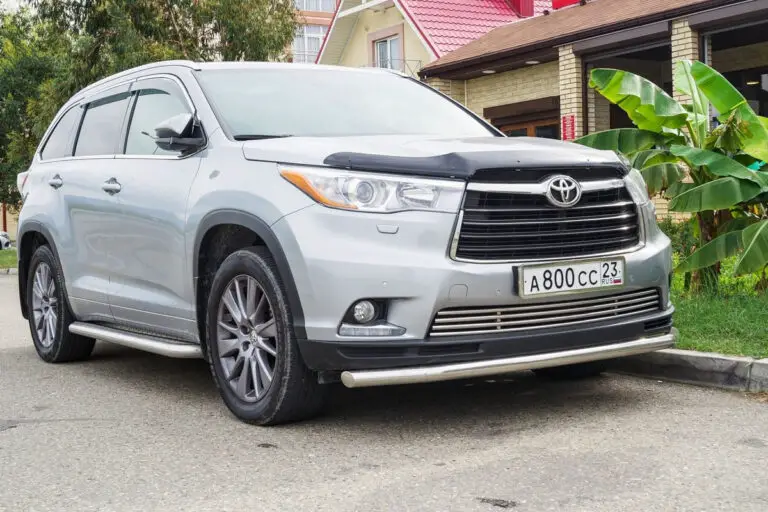Why Are My Brakes Squeaking When Stopping Slow?
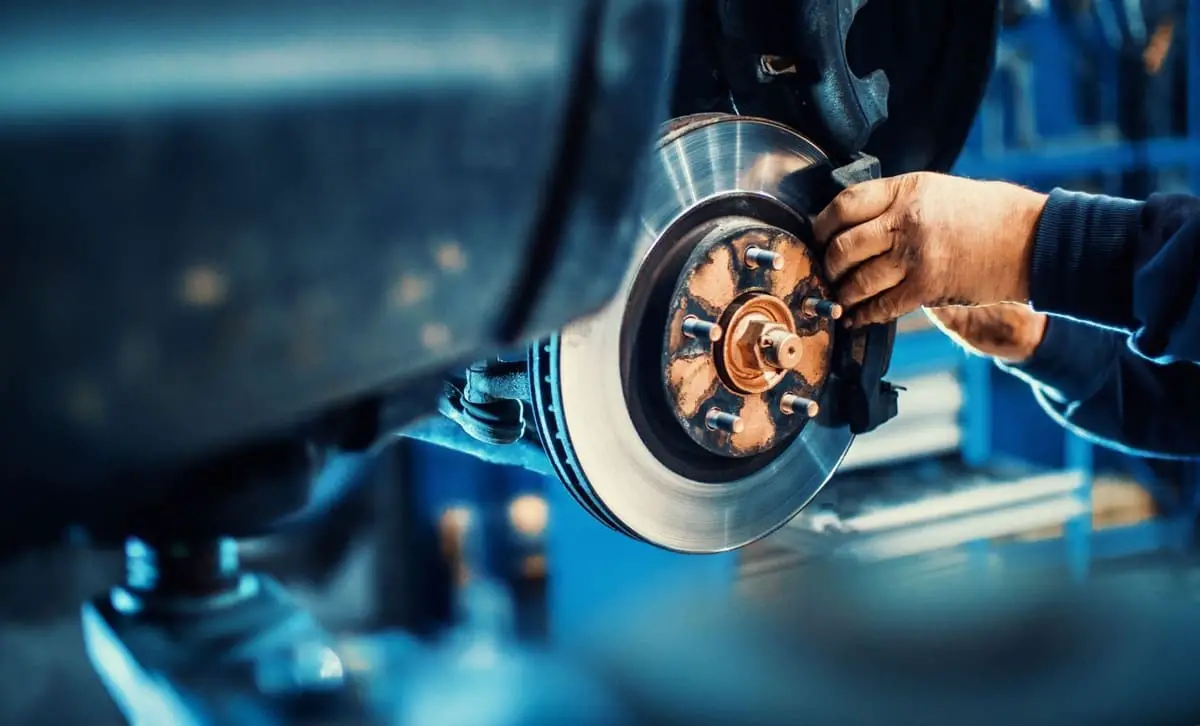
The reassuring feeling of being able to stop your vehicle quickly and safely is something every driver depends on. But when you press on the brakes and instead hear an unsettling high-pitched squealing or screeching sound, it can be deeply alarming. Why do brakes start loudly squeaking or squealing when coming to a stop, especially slowly? The short answer is that brake squeaking is almost always caused by the pads indicating they are wearing out, becoming contaminated with oil or grease, losing proper contact with the rotors due to vibration or loose components, or the brake system simply being dry and needing lubrication. By understanding the common root causes of brake squeaking and learning proper inspection techniques, you can diagnose and fix squeaky brakes to restore your vehicle’s optimal braking performance.
This article will cover the key reasons why brakes squeak when stopping slowly, how to pinpoint the exact cause through close inspection, the best repair solutions to stop brake noises for good, as well as tips for preventing future brake squeaking before it starts. With helpful information, examples, costs, and professional diagnostics guidance, you’ll gain the knowledge to troubleshoot brake squeal and have your car stopping quiet and confident again.
Table of Contents
What Causes Brakes to Squeak When Stopping Slowly?
Brake squeaking, squealing, or screeching when coming to a stop slowly is in almost all cases due to one of these five key causes:
- Worn-out brake pads: As pads wear down, the friction material thins out and their built-in wear indicators start touching the rotor, signaling the need for new pads with a high-pitched squeal. This is the #1 cause of brake squeaking.
- Contaminated brake pads: Oil, grease, fluids, or other contaminants on the pads reduces friction and causes squeaking, scraping, grinding noises when braking. This is common on inner brake pads.
- Loose, damaged, or missing brake components: Parts like calipers, retaining clips, and abutment shims fitting loosely or gone altogether creates vibrations, movement, and uneven pad wear that generate squeaking.
- Lack of brake lubrication: Dry contact points like caliper pins, bracket slides, and abutment points leads to metal-on-metal vibration and squeaking. Regular lubrication reduces noise.
- Aggressive brake pads: Performance pads equipped on some vehicles tend to be noisy by design under low speed braking when cold due to their high-friction formulas. This is normal behavior.
By far, the most common cause of brakes squeaking, especially at slow speeds, is when the brake pads are worn down near the end of their service life. As the pad material thins out, the bonding agents and fillers in the friction compound can start to separate and vibrate against the rotor, emitting a high-pitched squeal. Most brake pads also have built-in wear indicators specifically designed to start squealing loudly when the pad thickness reaches a dangerously low level.
Common Sources of Brake Squeaking Noises
Now that we’ve covered the general causes of squeaky brakes, let’s take a closer look at some of the most common sources of that annoying squeal:
Worn-Out Brake Pads
Worn-out brake pads are the #1 source of squealing and squeaking from your brakes. As pads wear down from friction, their ability to absorb vibration decreases. Several effects occur as pads near the end of service life:
- The friction material thins out and starts separating, allowing the bonding agents and fillers to vibrate against the rotor.
- Built-in wear indicators designed into pads start making contact with the rotor when pad thickness gets dangerously low. This metal-on-metal contact creates noise.
- Uneven pad deposition forms grooves that amplify vibration and harmonics.
All these effects of worn pads colliding with the spinning rotor translate into audible squeaking and screeching when braking, especially at slow speeds. The high-pitched squeal is telling you it’s time to replace the pads before they damage the rotors and completely wear away.
Contaminated Brake Pads
Oil, power steering fluid, grease, and other contaminants getting onto the surface of the brake pads is another frequent cause of squeaking brakes. Contaminants reduce the coefficient of friction between the pads and rotors, altering their noise-dampening characteristics.
Inner brake pads in particular are prone to contamination from leaking seals. The contaminants makes the pads slippery, unable to provide full contact with the rotor surface. This results in a high-pitched squeal under braking. The pads should be thoroughly cleaned or replaced to restore proper friction.
Loose, Damaged, or Missing Brake Components
The basic brake system is designed with shims, clips, pins, brackets, and retention bolts that keep everything aligned and prevent vibration. When these parts become worn out, fall off, or work themselves loose over time, the pads can move around in their mounts, causing uneven pressure and deposits on the rotor that generate squeaking noises.
Common culprits include:
- Loose brake calipers or caliper bolts
- Worn, corroded, or missing caliper slides and retaining pins
- Broken or detached anti-rattle springs and clips
- Damaged, missing, or incorrectly installed pad shims
- Loose or incorrectly torqued pad retaining and guide bolts
Doing a thorough inspection of the brake assembly and identifying any loose, damaged, or missing pieces is key to diagnosing and solving squeaks from mechanical issues.
Lack of Brake Lubrication
An often overlooked cause of brake squeal is a lack of lubrication on the caliper mounting points, slides, pins, bushings, and other metal-on-metal contact surfaces. These areas are supposed to be lubricated to reduce vibration, friction, and noise between components.
When lubrication dries out from heat cycling, the un-lubricated metal parts rub against each other when braking, potentially creating squeaking as the pads exert clamping pressure through the caliper. Fresh synthetic brake lubricant applied to the contact points will often eliminate the squeak.
How to Diagnose the Cause of Squeaky Brakes
Now that you know the most common reasons why brakes start squeaking and squealing, particularly at low speeds, diagnosing the specific cause on your own vehicle takes a trained ear and eye. Here are the general steps to identify what’s making the noise:
- Test drive and listen carefully – Drive the vehicle in a safe area, lightly braking from various speeds to pinpoint when the squeak occurs. Listen for the type of sound and try to identify where it’s coming from.
- Visual inspection – With the wheels removed, visually inspect the thickness and condition of the brake pads and rotors on each corner. Look for uneven wear patterns, glazing, cracking, or other issues.
- Feel for vibration – With the brakes applied lightly, feel for any vibration through the brake pedal, steering wheel, or chassis to detect warped rotors.
- Identify loose or missing hardware – Closely inspect brake hardware like caliper slides, pins, clips, springs, and shims. Note any that are loose, damaged, or missing that could be causing noise.
- Check lubrication points – Inspect lubrication around caliper mounting points. Squeaking when dry indicates the need for fresh brake lubricant.
- Road test with a mechanic – For confirmation, have an experienced mechanic road test the vehicle and put it up on a lift for a professional diagnosis if you’re still unsure of the cause.
Carefullyfollowing this process of elimination helps identify issues like worn pads, uneven rotor deposits, contaminated pads, and mechanical problems.
Step-by-Step Brake Inspection Process
To properly inspect your brakes for issues that cause squeaking:
- Safely lift the vehicle and secure it on jack stands. All four wheels need to be removed.
- Remove the wheels/tires to gain access to the brake components. Loosen the lug nuts before lifting.
- Check the outer brake pad thickness through the caliper. They should exceed 3mm of pad friction material left.
- Check the rotor condition. Look for uneven wear, grooves, discoloration, cracking. Rotors may need resurfacing or replacement.
- Identify any uneven pad deposits on the rotor face from loose calipers or hardware. This causes squeaking.
- Look for any signs of leaking lubrication or hydraulic fluid. Leaks indicate worn seals or damage.
- Closely inspect hardware like caliper slides, pins, clips, and shims. Note any missing, loose, worn, or corroded parts.
- Have a mechanic help confirm findings if you are unsure of the cause. They have specialized tools and expertise.
Following this hands-on brake inspection regimen allows you to hone in on the true cause, whether it be worn pads, contaminated pads, uneven rotor deposits, or loose caliper hardware.
How to Fix Squeaky Brakes When Stopting Slowly
Once you’ve identified the root cause of the brake squeal through methodical inspection, you can apply the proper fix:
1. Replace Worn Brake Pads
If the pads are worn with 2mm or less of friction material left, new replacement pads are required to stop the squeaking. Quality aftermarket or OEM pads matched to your vehicle make, model, and year should be installed. The rotors may also need resurfacing or replacement if deeply grooved.
Be sure pads are aligned properly and their retaining clips, springs, and hardware are sound. Lube contact points during pad replacement. Break-in the new pads gradually. Squeaking caused by worn pads should now be eliminated.
2. Clean Contaminated Pads
If the brake pads appear darkened or glazed with oil, grease, or some other contaminant, they must be cleaned or replaced. Use brake parts cleaner to thoroughly clean the pads and rotor faces. For glazing, buff pads lightly with 100-120 grit sandpaper.
Contaminated pads should actually be replaced, but you can try cleaning them thoroughly first. Under no circumstances should any oils, greases, or anti-seize compounds be applied to brake pads!
3. Re-Attach Loose Components
If hardware like caliper slides, guide pins, retaining clips, anti-rattle springs, or shims are loose, missing, worn out, or damaged, new OEM replacement parts should be installed. Use thread locker on threads. Torque hardware to spec with a torque wrench.
Properly securing all mounting points, slides, and contact surfaces will reduce vibration and unevenness that creates squeaking. Lubricate contact points during re-assembly. Test braking performance before road use.
4. Lubricate Contact Points
A squeak caused by lack of lubrication just needs a fresh application of silicone-based brake caliper grease or synthetic brake lubricant. Remove calipers to access slides, pins, bushings, etc. Clean off old grease. Apply new lubricant to contact points.
Avoid getting grease on the brake pads or rotors. Lubrication should eliminate any metal-on-metal squeaking from friction.
By methodically applying the right fix for the specific cause – worn pads, contaminated pads, mechanical issues, or lack of lube – you can resolve brake squeaking when stopping slowly in your vehicle.
Preventing Future Brake Squeaking
While many cases of squeaky brakes simply come down to worn pads needing replacement, you can take proactive steps to reduce the likelihood of those annoying noises occurring in the first place:
- Replace pads before they are fully worn out – Don’t wait for the wear indicators to start squealing. Change pads when thickness remains above 3mm.
- Lubricate brake hardware regularly – Keep caliper slides, pins, and mounting points freshly greased during pad changes and brake service.
- Promptly clean any fluid leaks – Clean up any leaked engine oil, brake fluid, or grease before it contaminates the pads.
- Keep pads free of oils and greases – Don’t let any lubricants, fluids, cleaners, or compounds touch the brake pads.
- Have brakes inspected twice yearly – Routine professional brake inspections help spot wear, damage, and lubrication needs before they cause squeaking. Be proactive!
The habit of replacing pads early, keeping brake hardware properly lubricated, and just maintaining the system clean goes a long way in preventing those annoying squeaks under braking. But some squeaking may still occur given enough miles.
Brake Squeak Diagnosis and Repair Costs
Like most car repairs, the cost to diagnose and fix squeaky brakes depends on the specific parts needing replacement, the make/model/year of vehicle, and local labor rates. Here are some typical costs:
- Brake inspection – $50 to $150 for a basic or full brake system inspection to diagnose the cause.
- Brake pad replacement – $150 to $250 per axle for quality, semi-metallic brake pads and new hardware. Pads should always be done in axle sets.
- Rotor resurfacing – $150 and up per rotor for on-car lathe resurfacing if rotors are worn but not damaged.
- Brake lubrication service – $25 to $50 per axle for cleaning and re-lubricating all sliding contact points.
For an entire vehicle, total repair costs can range from around $300 on the low end if only pads and lube are needed, up to $500 or more for pads, rotor and hardware replacement on both axles. Prices vary greatly by vehicle, severity of wear and damage, and local labor rates.
Squeaky brakes left unaddressed lead to more rapid wear, reduced stopping power, and potentially bigger repairs down the road. Fixing issues promptly is wise vehicle ownership.
Frequently Asked Questions About Squeaky Brakes
What if my brakes are still squeaking after replacing the pads?
If the new brake pads did not eliminate a pre-existing squeak, the rotors may be worn below spec and need resurfacing or replacement. Also inspect pad mounting hardware, slides, and lubrication points. Worn shims, springs, and pins can allow vibration and noise even with new pads.
Are squeaky brakes dangerous?
Not inherently dangerous if inspected regularly, but squealing is a warning sign that braking power is being reduced as pads wear down. Prolonged squeaking indicates metal-to-metal contact. Have brakes checked out immediately if they start making noise.
Can I drive with squeaky brakes?
You can drive a short distance with squeaky brakes to a repair shop. But the noise means your braking performance is compromised. Avoid extended driving until the cause is inspected and repaired.
Does brake squeaking always mean the pads need replacement?
Not necessarily in every case, but squeaking is a very strong indicator the pads are wearing thin. However, lack of lubrication or some types of contamination can also cause squeaks independent of pad thickness. But an inspection will reveal if replacement is needed.
The Takeaway on Squeaky Brakes
Hearing those high-pitched squealing or screeching noises when braking is always unsettling, but a logical inspection process helps reveal if it’s just worn pads needing replacement, a lubrication issue, or more serious mechanical problems. Most brake squeaks come down to pads wearing out or becoming contaminated. Replacing pads promptly is the key to restoring quiet operation and confident braking.
With the possible causes, detailed inspection tips, and repair solutions covered throughout this article, you now have the essential knowledge to diagnose and fix those annoying squeaky brakes for good. Understanding why brakes squeak at low speeds allows you to take the right steps to stop the noise and continue driving with properly functioning brakes. Just don’t ignore the warning sound of squealing pads and let your brakes wear into oblivion!



